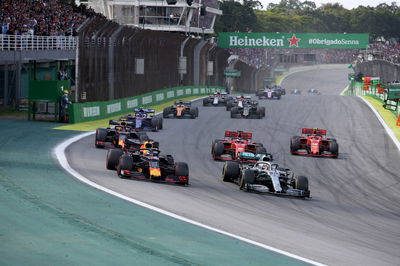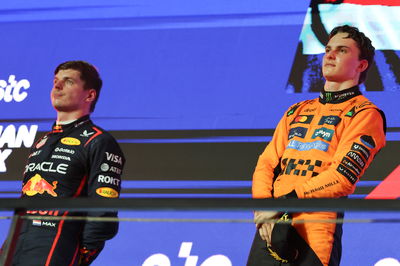McLaren helps puts ventilator into production
McLaren and a team of engineering firms have begun manufacturing a new ventilator after it was approved by UK health authorities for production amid the coronavirus pandemic.
The Woking-based team, along with Airbus and Ford, have come together to design a new ventilator, Penlon Prima ESO2, which is an updated version of an existing model, and will be built for hospitals over the next week.

McLaren and a team of engineering firms have begun manufacturing a new ventilator after it was approved by UK health authorities for production amid the coronavirus pandemic.
The Woking-based team, along with Airbus and Ford, have come together to design a new ventilator, Penlon Prima ESO2, which is an updated version of an existing model, and will be built for hospitals over the next week.
According to BBC News, the UK government is expected to purchase around 5,000 of the machines but looks set to ramp up demand to 15,000 units, with McLaren’s Woking site working alongside Aribus’s Broughton facility and Ford’s Dagenham engine factory to produce the ventilator.
It comes after the Medicines and Healthcare products Regulatory Agency (MHRA) approved the device.
The firms aim to make about 1,500 of the devices per week by the start of May, with Penlon usually able to produce only 50 or 60 ventilators per week.
Dick Elsy, chair of the VentilatorChallengeUK consortium making the device, told the BBC it had completed “stringent testing and clinical trials”.
“Ventilators of this type are complex and critical pieces of medical equipment, so ensuring the absolute adherence to regulatory standards and meeting clinical needs were always our priorities,” Elsy said.
McLaren F1 team principal Andreas Seidl said during the shutdown period for the race team the full focus at its factory has been on its ventilator production efforts.
“As soon as it was public that there was this big demand of producing these ventilators in the UK, straightaway some of the engineers and some people from production volunteered to look into that,” Seidl said.
“We became part of this consortium that you all know about, together with some big brands and names and the other Formula 1 teams. We simply put in action then our entire power we have in an F1 organisation - not just on the production side, on the engineering side, on the purchasing side, on the project management side - in order to play our role in manufacturing and assembling these ventilators.
“It’s impressive to see, not just on our side but looking at the whole F1 paddock, what we can produce in three to four weeks of time when we have to.
“Some of the people really are working 20 hours a day with a clear knowledge and aim to hopefully save lives with what we’re doing here.”
Elsewhere in the F1 efforts, led by the Project Pitlane initiative, Mercedes has produced a simpler breathing device which is less invasive than a ventilator and has manufactured 10,000 of the devices from its Brixworth engine factory.
Renault and Red Bull joined forces to develop another ventilator device but the project was eventually halted as it was not considered suitable for treating COVID-19 patients.











